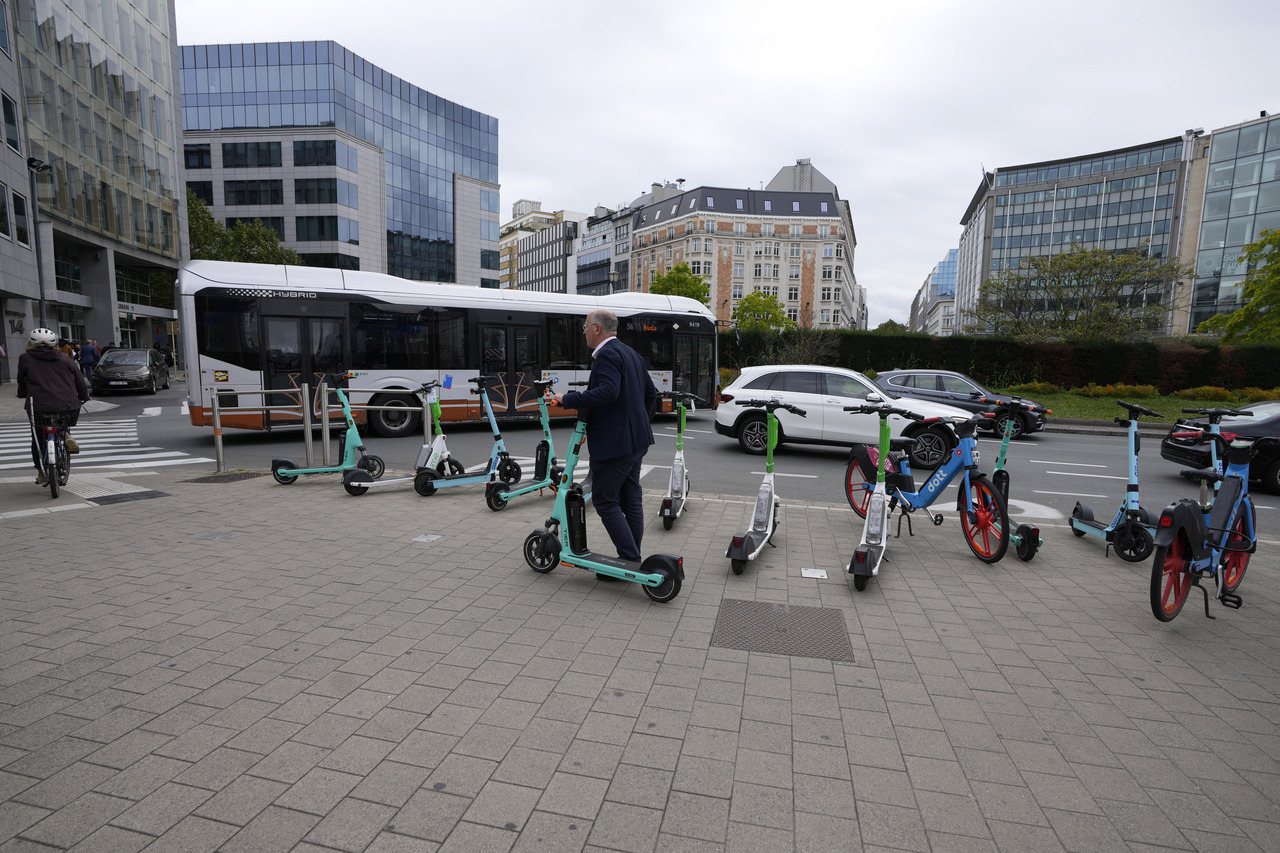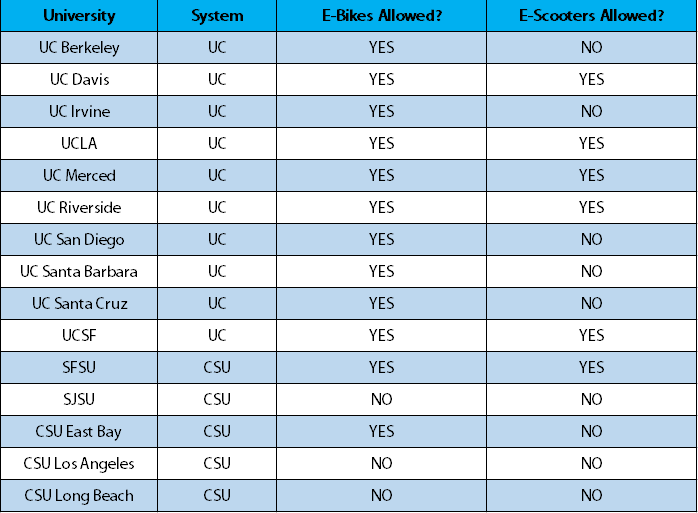Campus Electric Bike and Electric Skateboard Policy Cause Disagreement among Universities

Electric bikes and electric skateboards can be seen in most major cities in the United States. They are quickly overtaking non-motorized bikes and pedestrians. Despite their growing popularity, California universities are still unable to reach a consensus on how to handle them.
Some campuses allow students to ride both electric bikes and electric skateboards, while others only allow one or restrict their use in certain areas. Several completely prohibit them.
For college students, these modes of transportation mean shorter commuting times than walking. Renting or buying them is much cheaper than cars, and they are also easier to park. Because they run on electric batteries, these devices are more sustainable than gasoline-powered cars and produce less harmful emissions.
Kristine Bhan, a fourth-year student majoring in studio art at Long Beach State University, rides her electric skateboard and pulls heavy art supplies up many hills on campus.
“I put my art supplies on a document folder with a small hook, so I can hang it on my skateboard, and then I ride it to campus,” Bhan said. During peak hours, she prefers her electric skateboard to a car.
Electric bikes and electric skateboards are not only thriving on university campuses and nearby areas: electric micro-transportation is popular all over the country.

According to a report by the National Association of City Transportation Officials, shared electric bike trips, or bikes that can be borrowed or rented from automated or docking stations, increased from 9.5 million in 2018 to 17 million in 2021.
While these devices are attractive for their speed and convenience, they also bring safety risks. Their driving speed can exceed 30 miles per hour, which means accidents can be serious if the riders are not wearing protective gear. Pedestrians are also at risk of being hit.
According to a 2022 survey on university travel, at UC Davis, nearly a quarter (22%) of electric bike riders fell on campus, resulting in a visit to the emergency room or hospital. The rate of ordinary bike riders was only 7.5%. Nearly 90% of electric skateboard riders who fell or collided reported injuries that did not require medical care.
These devices also bring another safety issue: their lithium-ion batteries can catch fire in some cases.

Weighing the pros and cons of these devices, there is disagreement among California public universities about whether electric bikes and electric skateboards should roam the campus. All 10 UC campuses allow the use of electric bikes, while only 5 UC campuses allow the use of electric skateboards. In the CSU system with 23 campuses, 10 allow the use of electric bikes and electric skateboards, and at least 40 of the 116 community colleges in the state allow these two devices. Some campuses limit them to certain routes or areas.
Vehicle regulations allow state colleges and universities to regulate the use of bikes, electric bikes, skateboards, electric skateboards, roller skates, and “electric boards”, but they do not specifically include all scooters and electric scooters. Therefore, some campuses such as Sacramento State University allow the use of electric skateboards because campus officials do not believe that the state government gives them the power to refuse the use of electric skateboards on campus.

